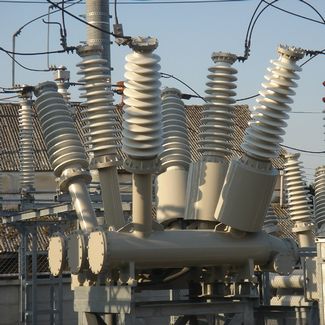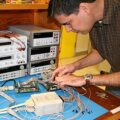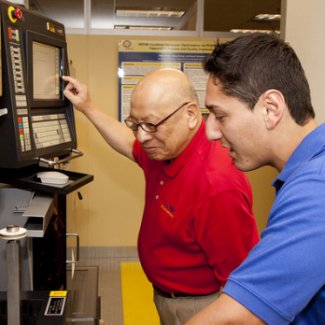
Closely related to electronic engineers and telecommunications engineers, electrical engineers work to make our daily lives more exciting, efficient, safe, and productive.
Daily Duties for Electrical Engineers:
- Designing new uses for electrical energy to develop or improve products
- Completing extensive detailed calculations for developing construction, manufacturing, and installation specifications
- Supervising the manufacture, install, and testing of electrical equipment to ensure that products meet codes and standards of regulation
- Investigating complaints from the public, assessing issues, and recommending effective solutions
- Collaborating with project managers on production efforts to guarantee all designs are successfully completed on time and within the established budget
- Planning modifications for electrical properties used in systems to improve technical performance
Electrical Engineer Job Description
What do electrical engineers do? In most cases, electrical engineers find employment in industries that participate in conducting research and development of electrical equipment. Most electrical engineers work in engineering firms, electric power generation or distribution, electromedical and control instruments manufacturing, semiconductor machinery manufacturing, architectural services, and for the federal government evaluating electrical services or systems.
While electrical engineers typically work indoors in office settings, they may have to travel occasionally to visit sites in observation of a certain problem or piece of complex electrical equipment. Electrical engineers normally are employed on a standard full-time schedule during business hours, but some are required to work overtime to meet tight deadlines. In the completion of their daily tasks, it is common for electrical engineers to work in teams with project managers, planners, designers, technicians, and other engineers.
Skills Needed to Be an Electrical Engineer
In general, it is required that electrical engineers have at least a bachelor’s degree with practical work experience and a Professional Engineer (PE) license. Due to the complexity of their daily tasks, successful electrical engineers need to possess a vast knowledge base on engineering, physics, algebra, trigonometry, calculus, drafting, technology, digital systems design, differential equations, and electrical circuit theories.
Furthermore, it is essential that electrical engineers have strong interpersonal skills for working with others during the manufacturing process, mathematical skills for analyzing or designing electrical equipment, and speaking skills to explain their complex designs and reasoning clearly. Since electrical engineers are responsible for keeping track of multiple design elements daily, they must be highly detail-oriented, organized, determined, and focused.











